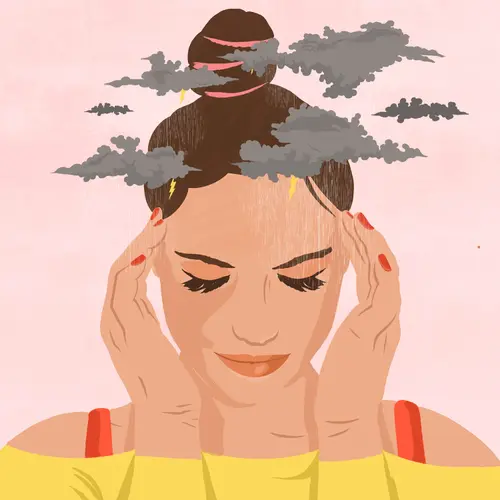Want to nip your headache in the bud? Try one of these stress-busting techniques.
Sleep Better
"Poor sleep increases the body's stress response," says Jason D. Rosenberg, MD, director of Johns Hopkins Headache Center. Getting enough shut-eye can keep headaches at bay.
Try for 7 to 8 hours a night and stick to a regular sleep schedule. Make an effort to go to bed at the same time every night and wake up at the same time every morning. Don't change that pattern much, even on weekends.
To improve your sleep, Rosenberg suggests these tips:
- Keep electronics out of your bedroom.
- Try not to drink too much fluid after dinner.
- If you can't sleep, get out of bed. Try to read quietly somewhere until you're drowsy.
Get Regular Exercise
Being active can burn off stress. "Exercise is a great way to get your mind off the things that you find stressful," says Natasha Withers, DO, of One Medical Group in New York.
When you get moving, it lowers stress hormones and boosts endorphins, which are your body's "feel-good" chemicals. It can also boost your mood and energy, she says.
Try to get 20 to 40 minutes of aerobic exercise -- activity that gets your heart pumping -- at least three times a week.
"Moderate aerobic exercise three times a week can reduce stress as well as migraines," Rosenberg says.
Eat Better
Follow a diet that's low in fat and high in complex carbohydrates. It can make a difference in how many headaches you get, how long they last, and how intense they are.
Withers suggests cutting processed foods from your diet and eating more anti-inflammatory foods, like fatty fish, whole grains, and dark, leafy greens.
Start with a healthy breakfast. Don't skip meals. "Have a healthy snack before you get hungry," Rosenberg says. "Hunger can trigger headaches."
Drink enough liquids to stay hydrated all day. But watch out for drinking too many caffeinated drinks, which may add to your stress.
It's helpful to stay at a healthy weight. "Studies strongly suggest that obesity can bring on or worsen headaches," Rosenberg says.
Use Relaxation Techniques
Any type of relaxation method can be very helpful to prevent stress headaches.
Some techniques you can try are:
- Meditation
- Deep breathing
- Progressive muscle relaxation (tensing and then relaxing all the major muscle groups, one at a time)
Take slow, deep breaths. Think of something that makes you feel happy and calm. Listen to music or take a walk in nature. Gentle exercises like yoga and tai chi can also help.
Take a Break
Having too much going on in your life can lead to tension headaches. Pare down your activities so you're not over-extended.
Take a break from stressful situations. Even a few minutes can help. Withers suggests going outside. "Go for a walk and get some fresh air," she says. That will stimulate your senses and shift your awareness to something other than whatever is making you feel stressed.
Carve out "me" time regularly. If you have a full schedule with a lot of demands, improve your time management by breaking large tasks into smaller chunks.
Connect With Others
Spend time with people who are important to you, like friends and family.
Get involved in your community. Volunteering is a powerful way to feel good and relieve stress.
"It can be an uplifting way to change how you feel about your life and at the same time positively impact someone else's life in a profound way," Withers says.
Get Support
If you have underlying stress, it can lead to headaches. Talk to someone about what may be making you feel tense.
A professional counselor can help you figure out what's upsetting you and teach you strategies for managing stress.
Use Good Posture
It helps to keep your body relaxed. Holding it the right way can prevent neck strain and muscle tension. Stand tall and don't slouch.
When you read, keep your neck in line with your body instead of letting it bend forward. When you use the computer, make sure the screen is at eye level.
Keep your face relaxed. Don't clench your jaw, which can lead to muscle tension.
